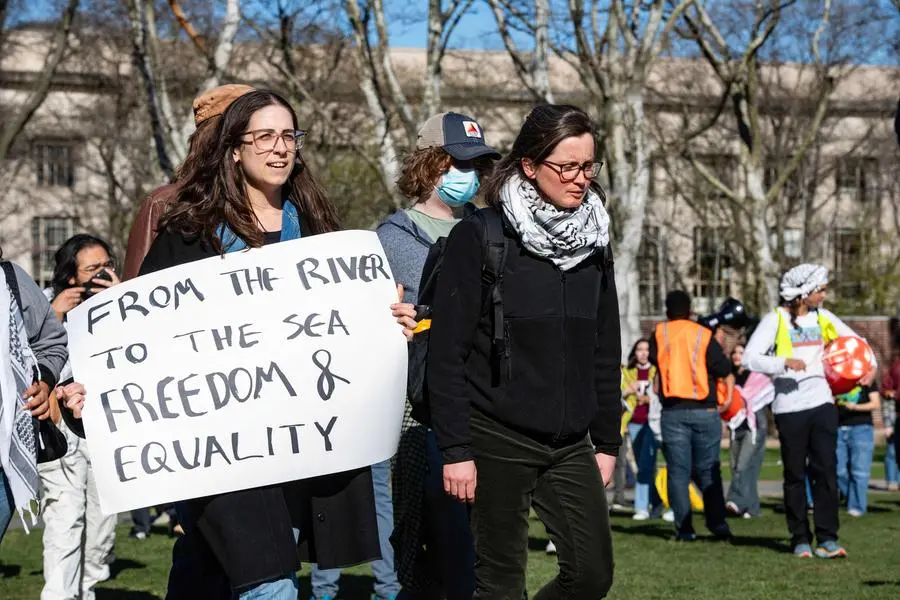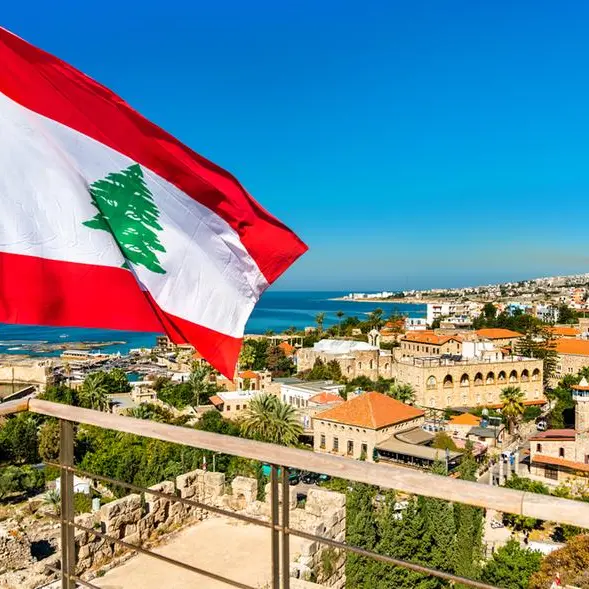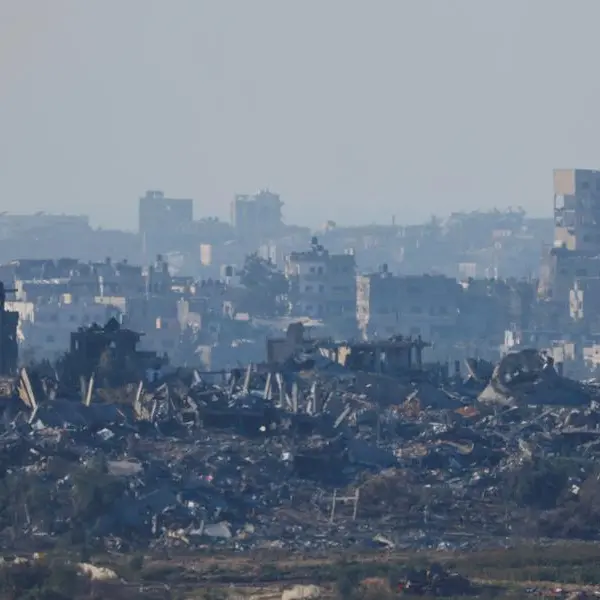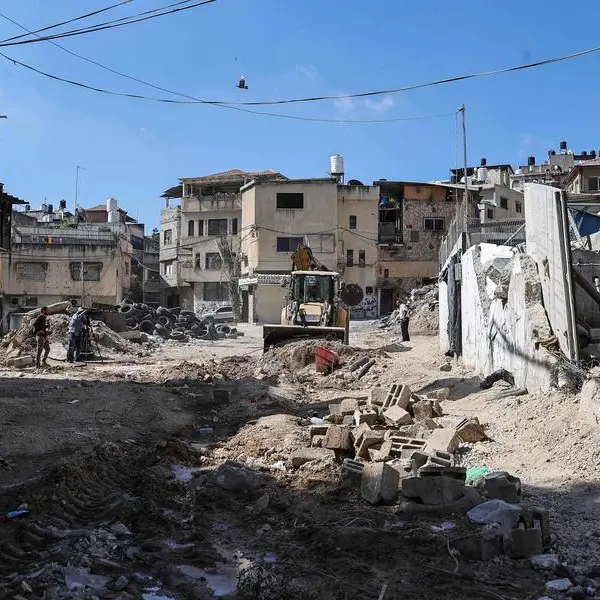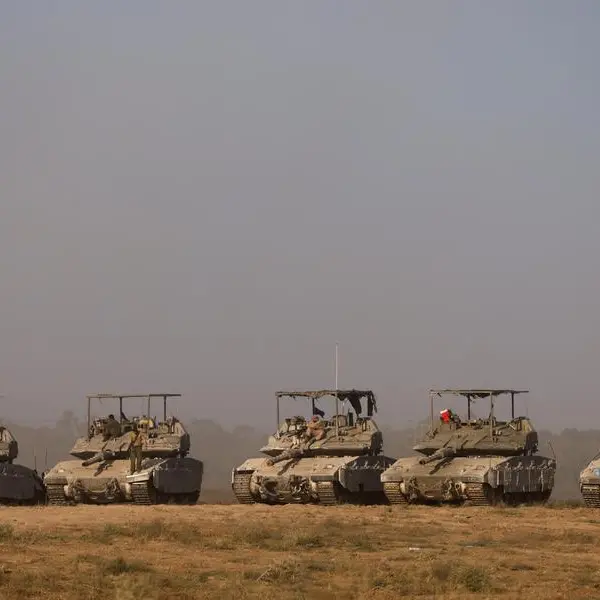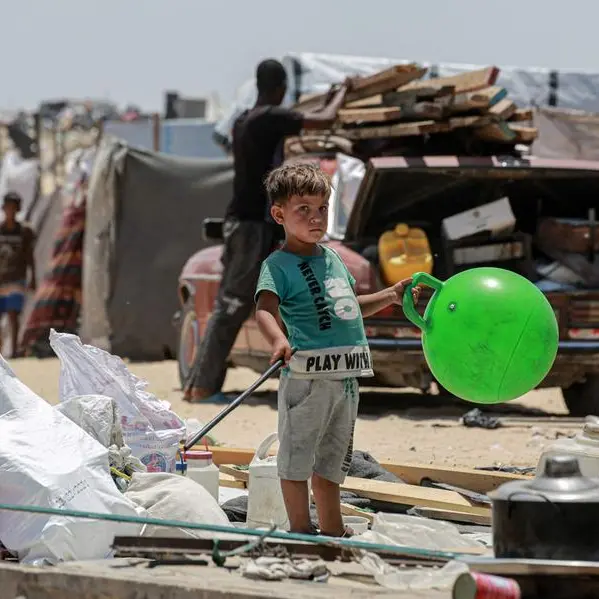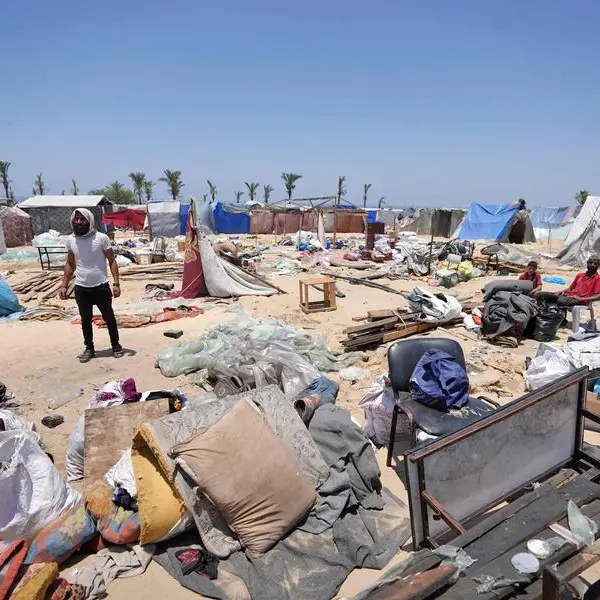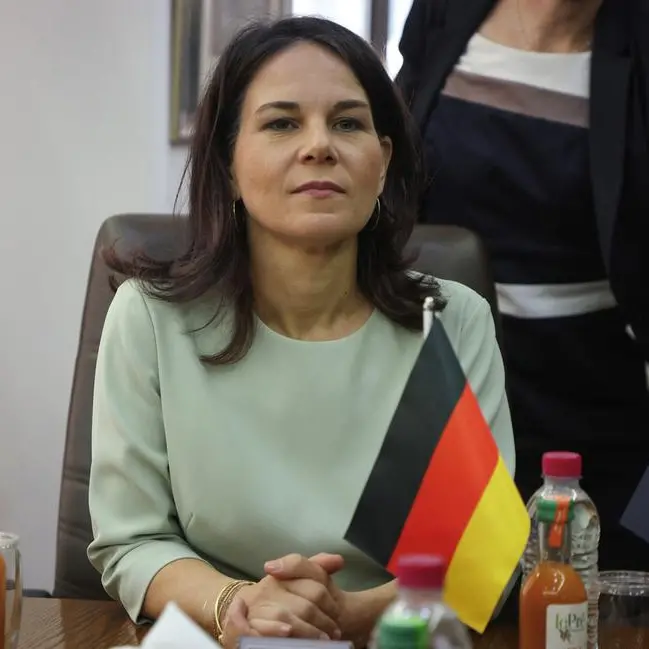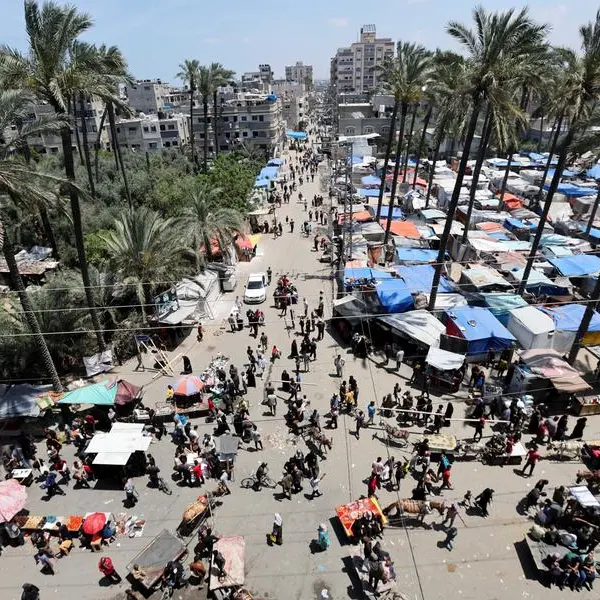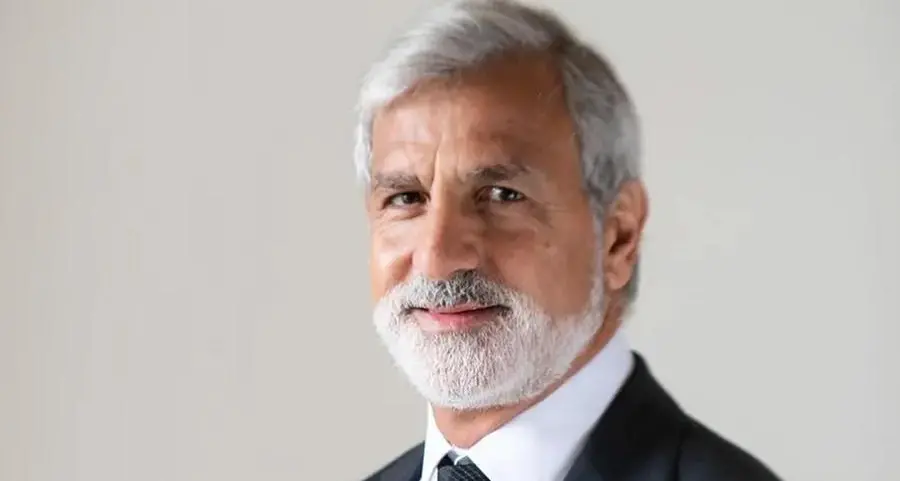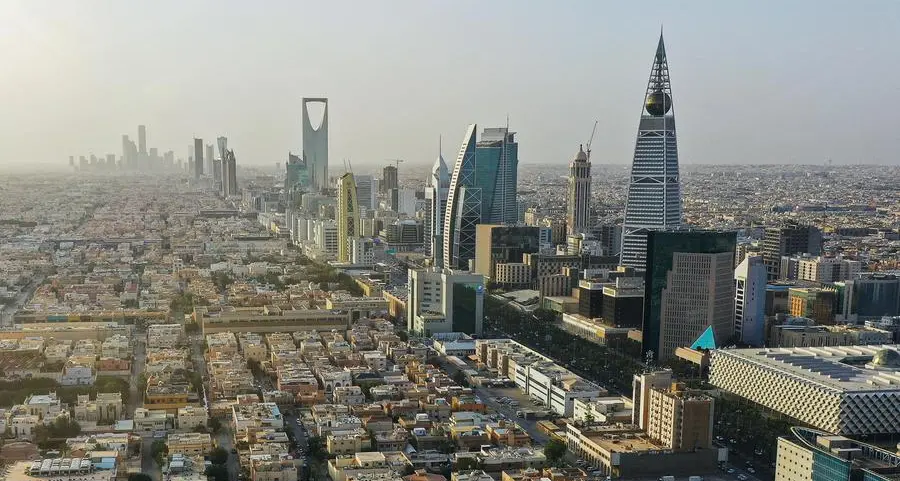PHOTO
Classes at Columbia University were shifted online Monday as protests over the Israel-Hamas war heightened tensions on US campuses and led to dozens of arrests at Yale University.
A large group of demonstrators has established a "Gaza Solidarity Encampment" on lawns at Columbia, with some Jewish students at the prestigious New York institution reporting intimidation and anti-Semitism amid the days-long protest.
In an open letter to the university community, Columbia's president Nemat Shafik said there needed to be "a reset."
"Over the past days, there have been too many examples of intimidating and harassing behavior on our campus," she said.
"Anti-Semitic language, like any other language that is used to hurt and frighten people, is unacceptable and appropriate action will be taken.
"To deescalate the rancor and give us all a chance to consider next steps, I am announcing that all classes will be held virtually on Monday," she added.
Pro-Palestinian demonstrators began their protest last week, calling for the university to divest from companies that have ties to Israel.
More than 100 of them were arrested after university authorities called the police onto the private campus on Thursday, a move that seemingly escalated tensions and sparked a greater turnout over the weekend.
Mimi Elias, a social work student who was arrested, told AFP on Monday: "We are going to stay until they talk to us and listen to our demands."
"We don't want anti-Semitism or Islamophobia. We are here for the liberation of all," Elias said.
Joseph Howley, an associate professor of classics at Columbia, said the university had reached for the "wrong tool" by involving police, which had attracted "more radical elements that are not part of our student protests."
"You can't discipline and punish your way out of prejudice and community disagreement," Howley told AFP.
- Disciplinary action -
Protests also spread to other campuses, including MIT, New York University, the University of Michigan and Yale, where at least 47 people had been arrested on Monday after refusing requests to disperse.
"The university made the decision to arrest those individuals who would not leave the plaza with the safety and security of the entire Yale community in mind and to allow access to university facilities by all members of our community," the Ivy League university said in a statement.
"Students who were arrested also will be referred for Yale disciplinary action, which includes a range of sanctions, such as reprimand, probation, or suspension."
Universities have become the focus of intense cultural debate in the United States since the October 7 Hamas attack and Israel's overwhelming military response to it.
President Joe Biden on Monday said he condemned "the anti-Semitic protests."
"I also condemn those who don't understand what's going on with the Palestinians," he told reporters, without further details
New York Mayor Eric Adams vowed that police would arrest anyone breaking the law.
"At no time should we call for the destruction of anyone, should we call for violence towards anyone -- that is not what protesting is about," he told CNN on Monday.
